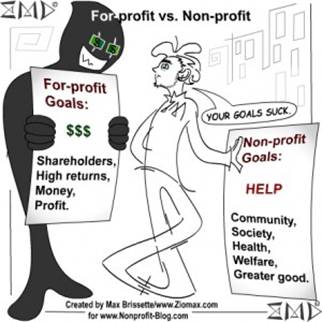With the world economic and business outlook still so uncertain, a key question is just how the businesses world can continue to do good as well as maintain their bottom line. Over the last few years, Corporate Social Responsibility (CSR) has become such a buzz word for business people with companies sprouting all sorts of CSR initiatives, but are companies really embracing CSR because they believe in it or are they in it for entirely selfish reasons? Are they really acting out of some kind of moral duty or is the reality still that they only care about the bottom line? In simpler terms, CSR means “doing the right thing”. A company’s commitment to CSR therefore implies ethical conduct and a moral sense of what is right and what is wrong, and it should aim to eliminate or minimise any negative impact of its business activities.
Even President Obama has been urging businesses to do the right thing and become socially responsible. His approach and vision is refreshing from all that has gone before us for so long. So the business person today faces a major dilemma. Whereas on the one hand, his or her company has to minimise the negative impact of its business activities on the environment, employees, suppliers, customers and the wider community, on the other hand it is only by maximising the company’s return can all these stakeholder groups be served adequately. What is Personal Social Responsibility? The pre-requisite for understanding and accepting the need for CSR and subsequently implementing it successfully is the concept of Personal Social Responsibility (PSR). PSR is all about doing to others what you would like others do to you. It is about recognising how your behaviour affects others, and holding yourself accountable for your actions. It is about being in integrity and doing the right thing for the right moral reasons. The key question to ask is how can we as individuals and businesses improve the world? Ideally a PSR aware person will:- However the real challenge the world faces today is for people at the top of the business world to do the “right” thing for themselves, their children and the world. Increasingly more and more companies must wake up to their responsibilities to the environment, the larger community and the global implications of their activities. Create your own PSR vision and journey Clearly the business debate is no longer about whether a company should make a substantial commitment to CSR but just how? Business people really do have to get their CSR act together and actually start doing stuff. So where do you begin? Start by firstly becoming aware of the concept of PSR. By coming from a place of being socially responsible for all your actions, you will immediately begin to think differently. And that will form a solid foundation for understanding and developing CSR in your business. Remember that PSR is more than just merely recycling paper or giving out money to your chosen charity. It is all about taking a firm stand and making a commitment towards giving back to society and at the same time ensuring the long term viability and profitability of your business. To get you started, my PSR vision is that as individuals we always do the best for us and the people in our lives, and at the same time our businesses endeavour to do the best for the world at large. Reach your own PSR vision by spending some time and answering the following questions. These questions will help you to develop your own understanding of PSR and CSR and ultimately create a plan of action that suits you and your business:- So begin today on your journey through this exciting, challenging and ultimately fulfilling world of business ethics, social responsibility and sustainability. 2. How will the world and future generations benefit from your company’s activities? 3. What legacy are you leaving behind through your work? 4. What would you like to be said about you after you die? And about your work? 5. If you only had six months to live, how would you spend some of that time making a difference in the world? In which area would you create the most urgency and why? 6. What does Corporate Social Responsibility mean to you? What does it mean to your company / business? 7. Do you believe that you and your business have a moral duty to respond to world problems? Why? What’s the ideal response to the various problems? 8. Can companies be socially responsible and be profitable at the same time? What level of profits is acceptable to you and why? 9. What do you think about this statement – “Responsible business should be about profit making, not profiteering?” Why? 10. What positive lessons can you learn from businesses that you think have a social conscience? What do you really like about the ethics of those businesses whose ethics you admire? What can you learn from them to apply in your own business? 11. If your children asked you if your business was ethical in all its activities, would you be able to look them in the eye and honestly say YES?! If NOT, what will it take for you to answer YES? 12. What legacy is your business creating for the children of tomorrow? Socially? Ethically? Environmentally? 13. What do you NOT want your business to continue doing? 14. If there was one thing you could change about your business and its ethics policy, what would it be? When will you make this change? 15. What is really stopping you and your business from being more socially responsible? What will you do next? 16. Having been on this short journey of discovering Personal Social Responsibility, how will you now live your life differently? 17. In what ways will you apply Personal Social Responsibility in your life from now on? Make your life and your actions count from today. Make it happen! Good luck and enjoy your journey. “Come from a place of being socially responsible – you owe it to our future generations.” ~ Arvind Devalia

